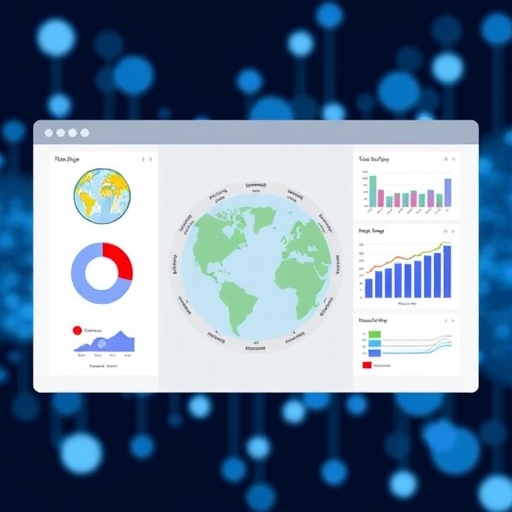In a groundbreaking advancement poised to redefine clinical research methodologies, the Mount Sinai Tisch Cancer Center has implemented an automated system that seamlessly transfers clinical data from electronic health records directly into clinical trial platforms. This transformative integration, powered by IgniteData’s Archer platform and embedded within the Epic electronic medical record system, represents a critical leap forward in the efficiency, accuracy, and velocity of cancer clinical trials conducted across the United States.
Historically, the process of documenting clinical data for trials has been fraught with redundancies and inefficiencies. Clinical research teams have long grappled with the tedious task of manually re-entering patient information into multiple disparate systems. This manual transcription, often duplicated across electronic data capture (EDC) systems and specialized trial databases, not only hampers workflow efficiency but also introduces risks of transcription errors, delays, and increased administrative overhead. The new integration at Mount Sinai eradicates these pain points by enabling automatic, real-time data synchronization between Epic and clinical trial databases.
The critical technological backbone facilitating this leap in research data management is the adoption of HL7® FHIR® standards. These healthcare-specific interoperability standards provide a universal language and framework, ensuring that the transfer of structured clinical data occurs securely, consistently, and with impeccable fidelity. By harnessing these protocols, Archer automates data flow into sponsor EDC systems, eliminating manual entry and thereby preserving data integrity from the point of capture during patient visits.
Early pilot studies underscore the profound impact of this integration, showing a staggering reduction of up to 70 percent in manual transcription time. The resultant gains extend beyond simple time savings; accuracy in data recording is significantly enhanced, mitigating risks of human error that can compromise trial validity. Furthermore, these efficiencies free clinical research staff to dedicate more energy toward patient interaction and study oversight rather than administrative tasks, a vital step in combating professional burnout and optimizing resource allocation.
Beyond operational efficiencies, the automated data transfer framework accelerates regulatory review and safety monitoring. As aggregated safety and trial data becomes available sooner, oversight bodies can more promptly identify emerging trends or safety concerns. This real-time vigilance not only ensures patient safety but also expedites regulatory decision-making, thereby shortening the timeline for bringing promising new therapies from concept to clinic.
Dr. Karyn Goodman, a leading figure in the Department of Radiation Oncology and Vice Chair of Clinical Research at Mount Sinai, heralds this integration as a pivotal moment in the conduct of clinical trials. She emphasizes that the automation and enhanced data accuracy directly translate into the ability to conduct more studies, engage a broader patient cohort, and deliver innovative treatments with greater speed and reliability.
The adoption of this cutting-edge data infrastructure aligns seamlessly with Mount Sinai Tisch Cancer Center’s recent designation as a National Cancer Institute Comprehensive Cancer Center. Such designations evaluate institutions not only on scientific innovation but also on operational excellence—particularly their ability to conduct complex, multicenter trials with high fidelity to data integrity and regulatory compliance. By showcasing advanced electronic systems capable of real-time, accurate, and secure data submission, Mount Sinai sets a new standard for research infrastructure maturity.
Therica Miller, Executive Director of Enterprise Cancer Clinical Research at Mount Sinai Tisch Cancer Institute, notes that this technological evolution profoundly benefits the specialized research workforce. Their expertise is now better utilized in patient-facing roles rather than redundant clerical work, reducing burnout while significantly expanding the center’s capacity to initiate and manage more clinical trials across diverse populations.
Currently, this innovative system is fully operational within Mount Sinai’s oncology services, representing a significant milestone in clinical trial data management. Plans are underway to extend this integration across other specialty areas, heralding an era where automated, real-time clinical data exchange becomes the norm in medical research.
Underlying this technological breakthrough is the Icahn School of Medicine at Mount Sinai’s commitment to pioneering research and delivering exceptional clinical care. With deep ties to seven member hospitals in the Mount Sinai Health System and an extensive network of scientists, clinicians, and educators, the institution continues to push the envelope in translational research and therapeutic development.
Ranking 11th nationally in National Institutes of Health funding, the Icahn School of Medicine at Mount Sinai exemplifies research excellence and innovation. By leveraging platforms like IgniteData’s Archer in conjunction with Epic, this institution not only innovates at the molecular and treatment levels but also innovates how clinical data flows, fundamentally altering the landscape of clinical research.
This fusion of sophisticated data interoperability standards and advanced health informatics tools illuminates a future where clinical trials are not only more efficient and accurate but also more inclusive and responsive. As data moves fluidly, securely, and instantly from point of care to trial databases, the potential to accelerate the development of transformative oncology treatments is vastly increased, impacting patient outcomes worldwide.
The Mount Sinai Tisch Cancer Center’s pioneering automation is a shining example of how integrating technology with clinical expertise can overcome longstanding barriers in medical research. By streamlining data processes, enhancing safety oversight, and reducing administrative fatigue, this initiative propels both the science and humanity of cancer research into a new era of possibility.
Subject of Research:
Clinical data automation and integration for cancer clinical trials using HL7® FHIR® standards within electronic health records
Article Title:
Mount Sinai Advances Cancer Clinical Trials with Automated Integration of Electronic Health Records and Trial Platforms
News Publication Date:
Information not provided
Web References:
Information not provided
References:
Information not provided
Image Credits:
Information not provided
Keywords:
Cancer research, Clinical trials, Electronic health records, Data automation, HL7 FHIR standards, Clinical data integration, Oncology research, Clinical trial efficiency, Patient data security, Translational medicine, Healthcare interoperability
Tags: automated data transfercancer research methodologiesclinical data synchronizationclinical trial efficiencyelectronic health recordsEpic electronic medical record systemhealthcare interoperability standardsHL7 FHIR standardsIgniteData Archer platformMount Sinai Tisch Cancer Centerreal-time data integration tooltranscription error reduction





